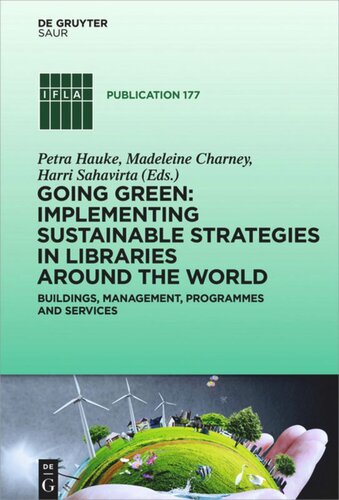

Most ebook files are in PDF format, so you can easily read them using various software such as Foxit Reader or directly on the Google Chrome browser.
Some ebook files are released by publishers in other formats such as .awz, .mobi, .epub, .fb2, etc. You may need to install specific software to read these formats on mobile/PC, such as Calibre.
Please read the tutorial at this link: https://ebookbell.com/faq
We offer FREE conversion to the popular formats you request; however, this may take some time. Therefore, right after payment, please email us, and we will try to provide the service as quickly as possible.
For some exceptional file formats or broken links (if any), please refrain from opening any disputes. Instead, email us first, and we will try to assist within a maximum of 6 hours.
EbookBell Team

4.1
90 reviewsThis publication examines aspects of reducing the ecological footprint in libraries’ workaday operations as well as the social role and responsibility of libraries as leaders in environmental sustainability. The theoretical background and practical applications of contributions made by worldwide libraries to the United Nations 2030 Sustainable Development Goals (SDGs) are discussed.
General articles and research studies from Finland, Germany, Portugal, and Brazil illuminate libraries’ contributions to the SDGs. Case studies from Sweden, Kenya, Germany, Ukraine, China, and Serbia highlight challenges and opportunities in implementing sustainable approaches in public libraries. Examples of best practice from academic libraries in Hong Kong, Cameroon, Germany, Uganda, USA and Kenya, are presented.
All papers published in this book are selected from the best papers of the ENSULIB Satellite Meeting 2017 in Berlin, the ENSULIB/Public Libraries Section’s Open Session at the IFLA Conference 2017 in Poland, and from the IFLA Green Library Award 2017. All articles are written in English.